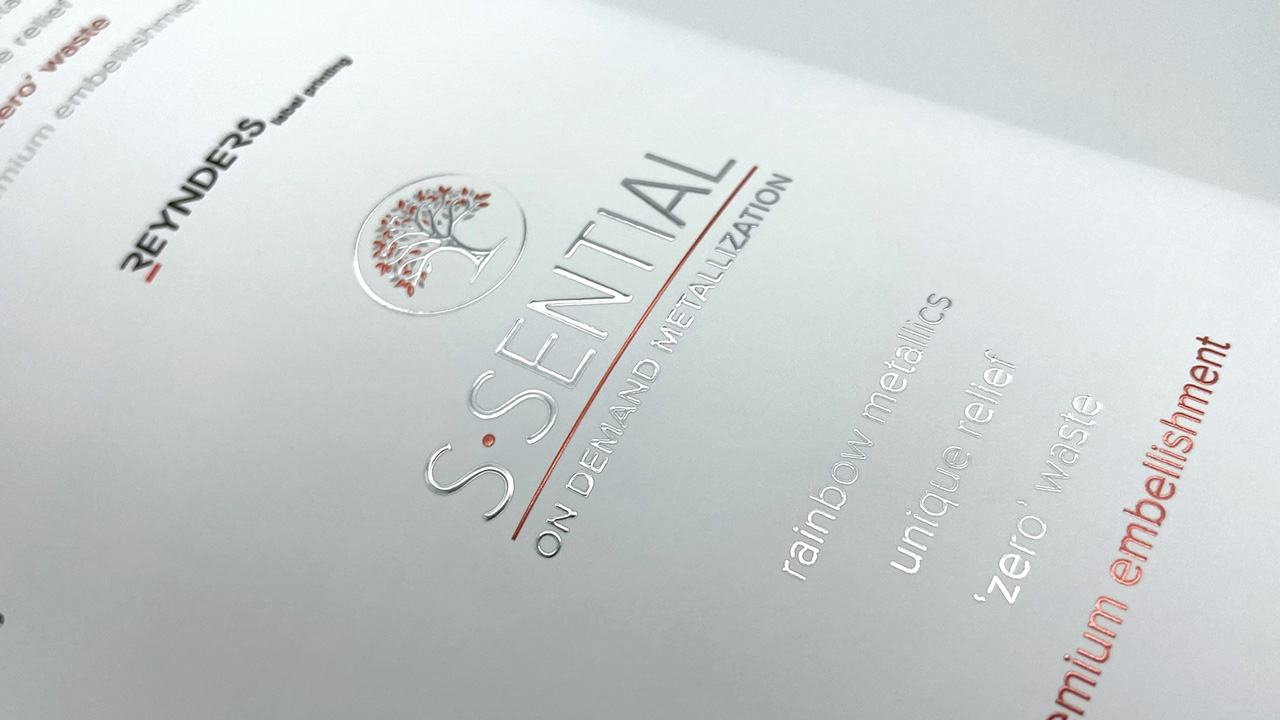Prolabels diversifies in Peru
The last decade has seen a proliferation of companies in Peru moving into label production from different sectors to take advantage of local market growth. But even by local standards, the progress made by Prolabels since its foundation in 2013 – with the installation of a Nilpeter FB-line press – has been impressive in such a short time frame. The company has won multiple awards for its high-quality production and has now diversified into flexible packaging.
Lima-based Prolabels is part of a graphics group with divisions dedicated to pre-press and wide format digital printing, and shares a 3,500 sqm factory with its sister companies. The group began with pre-press house Litho Laser in the early 1990s, and moved into wide format digital printing of banners and other products in 1997 with the foundation of Metrocom.
With digital printing experience under its belt, and seeing the strong growth in Peru’s label sector, the group moved into label production in 2013 with the foundation of Prolabels. Luis Bravo, who had run the HP Indigo digital division at Metrocom before leaving to work in a flexo pre-press house, returned to the company to run the label operation.
‘We could see that the rising local consumption in the food, beverage and consumer goods markets would continue,’ says Luis Bravo, ‘so the move made sense. It helped to diversify the company and protect ourselves against downturns in other sectors.’
Prolabels installed an 8-color Nilpeter FB flexo press. ‘We opted for flexo instead of digital because of its greater profitability and wider range of potential products and end use sectors,’ reveals Bravo.
Challenges
The project started from scratch – the fledgling company had no flexo printing experience and no label industry clients. ‘We had to go after new clients in new markets,’ recalls Vico Doig, administrative manager at Metrocom. ‘The bureaucracy of starting a new operation was complicated: we had to deal with red tape, with energy suppliers. There were delays and time was lost. It was difficult in that respect.’
‘We built the operation from nothing,’ adds Bravo. ‘We had to learn about flexo printing and had to find new clients. Training was a big challenge: it has come through a mixture of supplier support and in-house training. We have a culture of in-house training; we don’t steal staff from competitors [a common occurrence in Peru, with so many companies entering the market]. It might take longer, but is more sustainable.’
Pre-press is handled by sister company Litho Laser. An offset CTP operation, Litho Laser had no experience in flexo pre-press and installed Kodak platemaking equipment for the purpose.
Despite these challenges, label printing began within six months of making the decision. The company aims its work at small and medium-sized clients, with the food sector taking 80 percent of production and personal care and cleaning products representing most of the rest. Prolabels is also active in the agriculture sector, and reports strong growth in that area. The company employs 20 people, while the wider group has 350 staff at the Lima factory. ‘We focus on promotional and seasonal jobs, with shorter runs,’ says Bravo. ‘We are betting on the growth of the small end use clients.’
Shrink sleeve production – for the beverage market – began at the same time, with a raft of Karlville equipment installed to convert shrink sleeves printed on the Nilpeter press. Before the installation of the second Nilpeter press in late 2016, production was split 60-40 between labels and shrink sleeves.
‘We felt that the shrink sleeves being produced locally were often not of high quality, and that we could compete,’ says Bravo. ‘The market for shrink sleeves has started to grow here in Peru. Clients are increasingly asking for them, although volumes are still small. But there is room for growth – in Colombia, for example, the shrink sleeve market is much bigger than in Peru.’
Given it started from nothing, growth has been quick and consistent, with Bravo reporting that 2016 was Prolabels’ best year.
‘There has been good growth in the local market, and we have responded to the need for short runs,’ says Vico Doig. Production all goes to the local market, though many clients export their products.
‘The amount of products that our clients export has been increasing a great deal.’
‘Prolabels has seen constant growth since its foundation,’ Bravo continues. ‘Last year was successful enough that we decided it was time to install a second press to increase capacity and diversify our product range.’
Expansion
Installed in October 2016, this second machine was a Nilpeter FA-line press – with a significantly wider web width than the first machine from the Danish manufacturer – to handle shrink sleeve work and expand production into flexible packaging. It’s the first press of its type to be installed by Nilpeter in Latin America.
‘We feel there are strong opportunities in the flexible packaging market, as there is not a great deal of local competition,’ explains Bravo. Thus far, some 10 percent of clients are ordering both labels and flexible packaging.
‘We are always looking to differentiate ourselves,’ says Bravo. ‘Not only in price but also in service and quality. We focus on added value rather than enter price wars. There is no point in selling something cheaply if it does not do the job that the client requires, or if it arrives too late. Our philosophy is innovation with excellent quality and service.’
Stay up to date
Subscribe to the free Label News newsletter and receive the latest content every week. We'll never share your email address.


